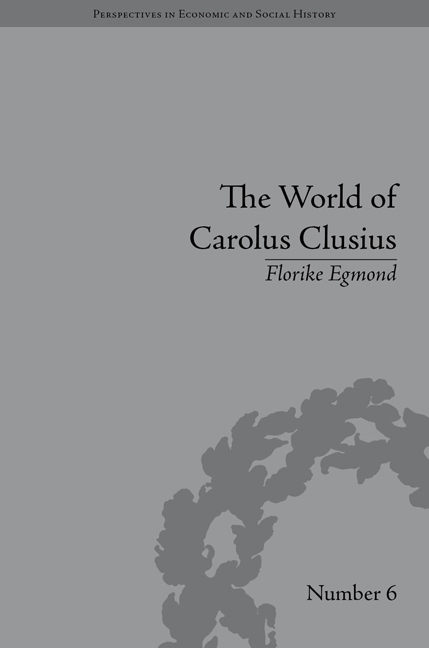Book contents
- Frontmatter
- CONTENTS
- Miscellaneous Frontmatter
- Preface
- Technical Note
- Abbreviations
- List of Figures
- Introduction
- I The Southern Netherlands
- II Habsburg Women
- III Italy
- IV France
- 7 Fieldwork in France: Exploring the Indigenous Flora
- 8 French Collectors between Port and Court: The Desire for Rarity
- V Holland
- VI Beyond Place
- Conclusion
- Notes
- Works Cited
- Index
8 - French Collectors between Port and Court: The Desire for Rarity
from IV - France
- Frontmatter
- CONTENTS
- Miscellaneous Frontmatter
- Preface
- Technical Note
- Abbreviations
- List of Figures
- Introduction
- I The Southern Netherlands
- II Habsburg Women
- III Italy
- IV France
- 7 Fieldwork in France: Exploring the Indigenous Flora
- 8 French Collectors between Port and Court: The Desire for Rarity
- V Holland
- VI Beyond Place
- Conclusion
- Notes
- Works Cited
- Index
Summary
Levenier's correspondence with Clusius holds a surprise. After an almost complete absence, exotic plants emerge suddenly in a rather spectacular way in the very last of his eighteen long letters to Clusius written between 1597 and 1606. By June 1606 Levenier was expecting the return of his nephew Jean Bachelier, whom he had sent out some two and a half years earlier to ‘Constantinople and other places in the Levant. He promises to bring me many beautiful and rare things which have not been seen before in Europe and to give me as much contentment as I can wish for upon his return’ (Levenier, 13 June 1606). That emphasis on rare things which had not been seen before in Europe reveals the principal reason why Levenier had sent his relative to the eastern Mediterranean – much as Madame von Heusenstain had sent her own courier from Vienna to Constantinople. Levenier must have wanted direct access to exotic discoveries which were even more spectacular than his indigenous ones. A friend and fellow garden owner even told Clusius that Levenier had high hopes that ‘one of his men’, whom he had sent out to search ‘all over the Orient and even the kingdom of China’, would bring back ‘excellent flowers which are completely unknown to us’ (Vertunien, 25 February 1606). China was a bit of an exaggeration – we must suppose – but all the rest was true.
- Type
- Chapter
- Information
- The World of Carolus ClusiusNatural History in the Making, 1550–1610, pp. 125 - 140Publisher: Pickering & ChattoFirst published in: 2014



